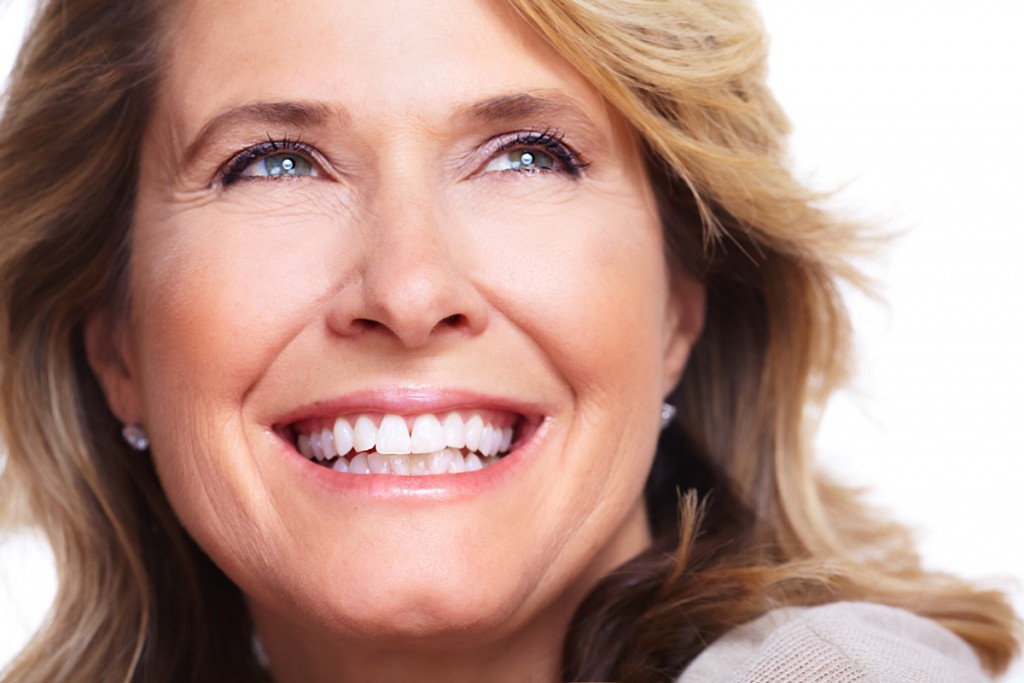Mature skin care: how to take care of the skin after the age of 50?
It’s inevitable – the skin is aging and sooner or later it will be covered with a net of wrinkles. Every woman wants to delay this process somehow, but most of us still don’t quite know how to do it. What is really happening when our organism enters into this second, less-friendly half-century? How does skin condition change and what’s the best way to take care of it?
 Skin aging – due to hormonal changes
Skin aging – due to hormonal changes
This hormonal changes in the body determine the whole body for transformation. Menstruation disappears, there are changes associated with menopause. The level of estrogen starts to drop rapidly, and this has a direct impact on the metabolism of skin cells: it loses elasticity, begins to dry out (it has too little hyaluronic acid), becomes flaccid and therefore creates a net of wrinkles.
What’s more – the skin after the age of 50 becomes thinner because it experiences a deficiency of collagen and elastin, and these are responsible for the correct structure of proteins supporting the skin.
Skin aging – due to the loss of fat
Fat deposits are decreasing. At first it sounds good, but unfortunately the fat disappears in such places where it would be better to keep it in unchanged concentration, i.e. near the nose and lips (its loss results in wrinkles and furrows appearing there), the cheeks start to drop, the skin on the chin also and thus, it becomes saggy and free of elasticity. Fat tissue around the face, neck and neckline is a natural support for the skin and a kind of filler, and is largely responsible for the maintenance of water in the body.
Skin aging – are genes guilty?
The aging of the skin and the high number of wrinkles may be influenced by genes – such predispositions cannot be dealt with, but it is worth remembering that proper care and anti-wrinkle prophylaxis can help and delay the first appearance of fine lines and flaccidity. Well-matched cosmetics and regularity in beautifying rituals is the key to healthy and younger-looking skin.
Skin aging – will a moisturizing cream suffice?
Changing the skin care routine and adapting to the growing needs of the skin for some people becomes troublesome – it turns out to be hard to change old habits and switch to a cream with a different, richer composition.
Many women stay faithful to only one face cream for years or think that the extension of care rituals is unnecessary because a moisturized skin ages slowly. Of course, there is nothing wrong with the moisturizing cream, but remember that the older you get, the more ingredients your skin needs to be supplied with. It is no longer able to produce them itself and thus it draws from the reserves of the organism that are bound to end at some point.
Let’s also remember that the skin becomes accustomed to cosmetics – if we constantly use one and the same face cream over and over – soon it will stop working as much as after the first or the second jar.
How to prevent wrinkles? Exercises and face massage
In addition to the everyday beauty rituals we should be using all the benefits that modern cosmetology offers us, it is also worth (literally) taking matters into your own hands and doing facial massage or try out exercises designed to reduce wrinkles (that’s what face yoga is for). Regularly performed facial massage will not only stimulate blood circulation and act as lymphatic drainage, but also facilitate the absorption of creams or oils. Furthermore, a massage is also beneficial because it stimulates cells to work in deeper parts of the skin and helps in getting rid of metabolites.
How to prevent wrinkles – the best ingredient of face creams
For the cream to support anti-aging prophylaxis, it is making sure whether it contains ingredients with proven anti-wrinkle effects. They include:
- vitamin A derivatives (mainly retinol) – they stimulate the formation of up to three types of collagen, improve skin tone, protect against harmful radiation
- hyaluronic acid – the main component of connective tissue and one of the most important components beneficial for youth and skin firmness; it has an unbelievable ability to combine water particles and prevents its loss
- vitamin C (otherwise: ascorbic acid) stimulates collagen synthesis, inhibits the skin-damaging effects of enzymes called metalloproteinases, lightens the skin, prevents the formation of pigmentation spots
- vitamin E – protects against UV radiation that is harmful to the skin (erythema, discoloration), and provides antioxidant qualities
- carnosine – prolongs the life of fibroblasts (or dermis cells)
- genistein – a substance that inhibits enzymes that destroy collagen fibers
- coenzyme Q10 (in other words: alpha-lipoic acid) – it has a strong antioxidant effect, prevents skin damage and significantly slows its aging, reducing wrinkles and preventing the formation of new ones
- collagen – one of the most important ingredients rejuvenating the skin; The most popular form of the “cosmetic” is marine collagen, which contains a number of amino acids responsible for the synthesis of collagen and maintaining the appropriate skin density.
